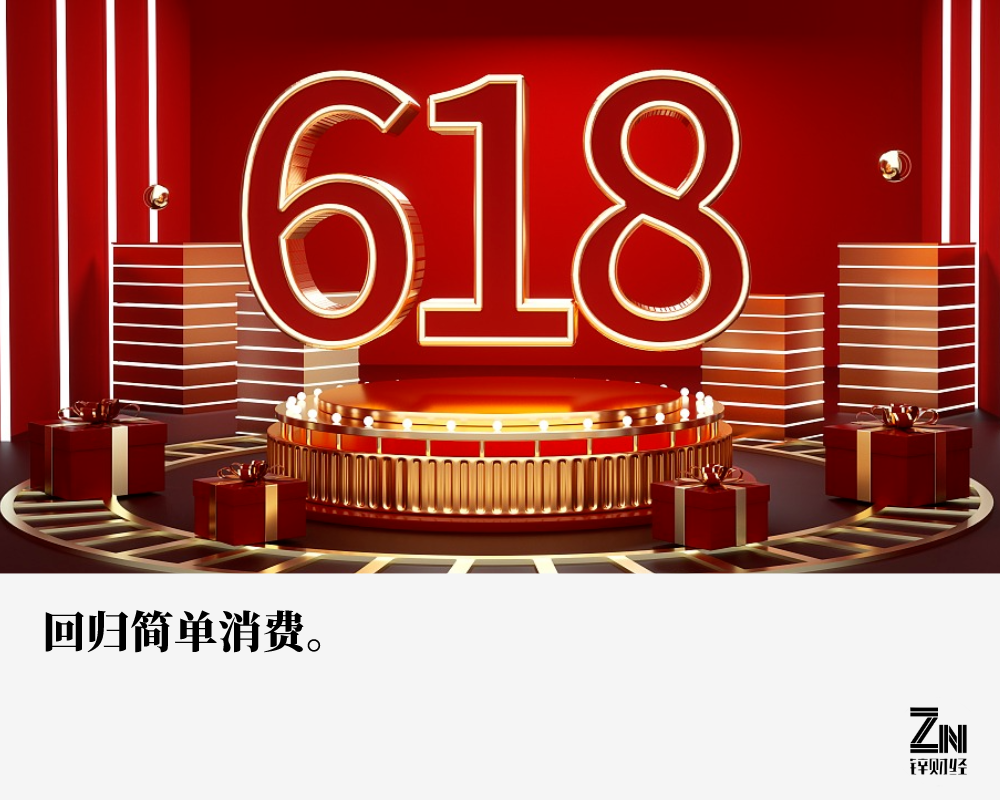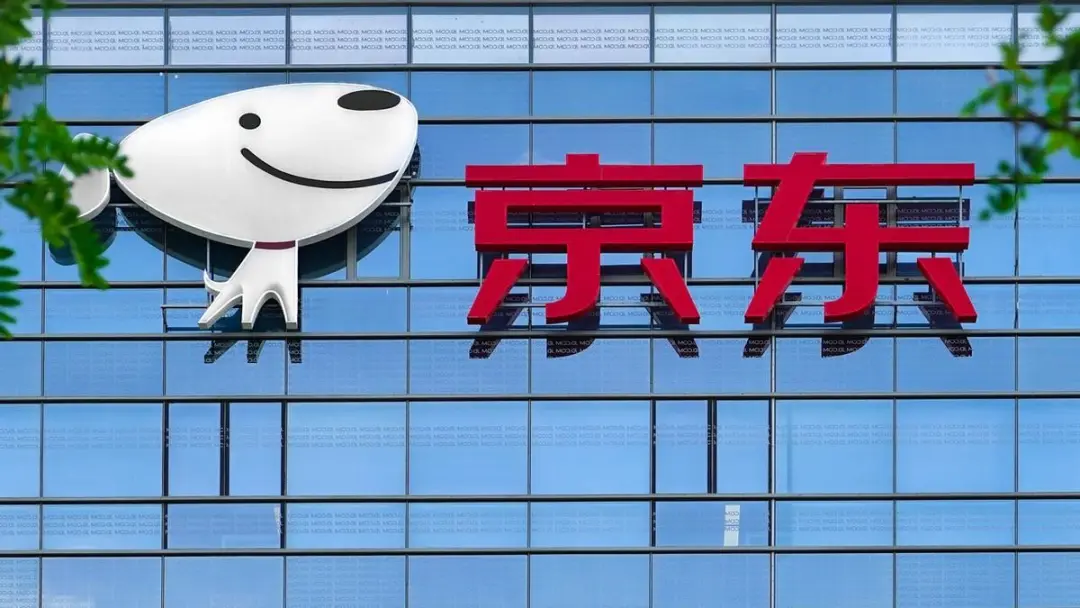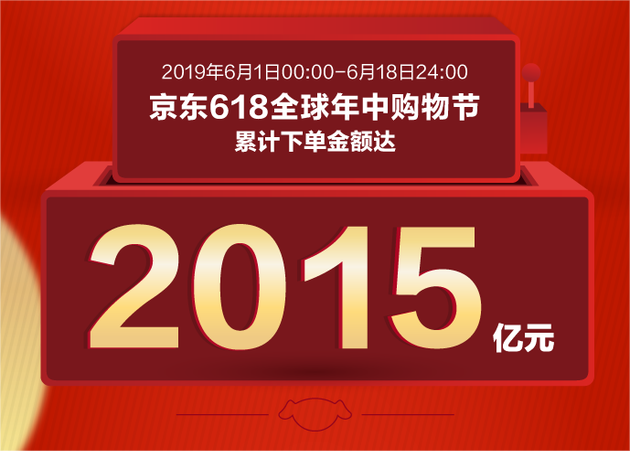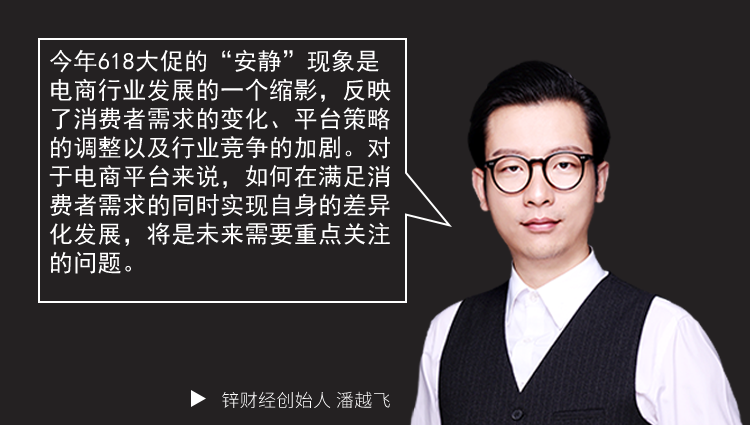618, a Quiet Affair
![]() 06/13 2024
06/13 2024
![]() 558
558

Author: Chen Yan
Editor: Da Feng
This year's 618 is much quieter than previous years.
Before the official start of the sale, Taobao, JD.com, and other veteran players canceled the decade-old pre-sale model, eliminating flashy gimmicks and directly presenting discount plans, claiming to return to the consumers.
Top influencers on various platforms are "lying flat" one after another. Xiao Yang Ge started to fade out of live broadcasts months earlier, and Dong Yuhui didn't put much effort into the 618 sale. Even Li Jiaqi, who is always well-prepared, had a psychological expectation: "We're welcoming this year's 618 sale. Is it difficult? I think it's difficult."
After more than a decade of e-commerce sales frenzy, consumers' expectations and novelty are declining. To retain consumers, platform merchants are frantically "convoluting" details, with gameplay and actions converging.
Perhaps the "quietness" of e-commerce sales will become the norm.
01
Simplifying Complexity, No New Stories to Tell
Over the past few years, the 618 sales on various platforms have been reduced to two main strategies: one is to extend the sales period, and the other is to compete on low prices.
This year, in addition to JD.com, platforms like Taobao Tmall, Douyin, and Kuaishou have stretched the promotion period to over 30 or even 40 days. For example, Taobao Tmall officially started selling on May 20th at 8 pm, and the event ended on June 20th; Kuaishou started on May 20th and ended on June 30th.
Compared to last year's 618, these platforms' event durations were around 20 to 30 days. This year can be considered the longest promotional period in history.
From a core strategy perspective, major e-commerce platforms are adopting a simple and brutal low-price approach during this year's 618, eager to plaster the word "discount" on their faces.
Taobao Tmall offers cross-store discounts of 50 yuan for every 300 yuan spent, official discounts starting from 15% off, super red envelopes, and other promotional methods. It emphasizes full-process price protection and strictly regulates the phenomenon of "raising prices before lowering them." JD.com, in addition to offering 50 yuan off for every 300 yuan spent, also launched limited-time activities such as the Hundred Billion Subsidy Day, 9.9 Free Shipping Day, and Super Live Day during the event.

Douyin and Kuaishou's playstyles are similar, mainly focusing on large platform subsidies.
To retain consumers and prevent them from flowing to other e-commerce platforms, everyone is simplifying processes and adding to the consumer experience, hoping to create a shopping atmosphere where "consumers have enough time to buy cheaper products."
The underlying subtext is: there's nothing new to talk about. We can only focus on low prices and service, grasping the existing stock—of course, this is actually a return to the essence of consumers.
In fact, starting from last year's 618, platforms like JD.com, Douyin, and Kuaishou have "tacitly" stopped announcing "battle reports." Taobao Tmall has not disclosed the total transaction amount since a few years ago. This also reflects from the side that the overall growth rate of 618 sales is slowing down, and it's no longer necessary to compare achievements.
According to statistics from StarChart Data, as of 2023, the growth rate of the total transaction amount of 618 across the entire network has slowed down for three consecutive years, with only a year-on-year increase of 14.77%, the lowest in the past three years.
In other words, over the years, the marginal effect of 618 sales is accelerating, and its created value cannot be compared to the past.
02
Consumption Returns to Rationality, Sales Stimulation Weakens
One can sense that although various e-commerce platforms claim to hold a big 618 sale every year, on the consumer end, the splash is getting smaller and smaller.
In recent years, from 618 to Double 11, e-commerce festivals have become more frequent, with shopping festivals of varying sizes almost every month. For example, in May this year, Taobao Tmall's May Day promotion, 510 anniversary celebration, and 520 gift season seamlessly connected with this 618 sale, and consumers gradually lost the sense of stimulation brought by the sale.

In other words, since platforms offer daily subsidies and discounts aplenty, consumers don't need to concentrate their purchases on the 618 period. Part of the traffic from the 618 sale has been dispersed into daily promotions.
In addition, entering the era of stock, with fierce competition, major e-commerce platforms have flooded into the low-price track, pursuing extreme cost-effectiveness.
Low prices are an effective means, but over-pursuing low prices will lead to no one making money, with merchants being the first to suffer. Some merchants even take risks to cut corners to reduce costs, flooding the market with low-priced, poor-quality products, which in turn negatively impacts the image of e-commerce platforms.
Over time, consumers gradually become tired of this unreasonable low pricing and doubt the product quality and reliability of e-commerce platforms.
For example, during last year's 618, the jewelry return rate on Douyin exceeded 90%, sparking heated discussions.

Since consumers can't directly "touch" the physical products in Douyin live broadcasts, some merchants cleverly use equipment like lights and lighting boards to make jewelry and jade look "crystal clear" in front of the camera. Anchors then use highly inflammatory rhetoric like "subsidized with tears," "only for today," "amazingly low prices," and so on, prompting consumers to impulsively place orders.
But when consumers receive the products, they find that the quality is nowhere near what they imagined. Some live broadcasts even engage in "bait and switch." Some consumers have reported that the Burmese jade they bought on Douyin was actually from Guatemala, with a value one-tenth that of Burmese jade. However, the national standard testing for jadeite does not identify the place of origin, allowing many merchants to take advantage.
Mismatched goods and lax supervision have become the Damocles' sword hanging over e-commerce platforms. In this process, some consumers have also begun to return to offline consumption, pursuing "tangible" products.
03
Platform Festivals, Once Bustling with Noise
On the eve of 618 in 2013, JD.com was preparing in a conference room in Chengdu. There were over 50 people and dozens of computers in the room, with two large TVs placed by the wall. Due to insufficient outlets, the power overloaded and tripped, and they had to temporarily pull an extension cord to get by.
Everyone stayed up all night, waiting for the peak period of 618 to arrive.
According to reports, JD.com's 618 sales just exceeded 60 billion yuan in 2012; in 2013, there was a major explosion, with sales exceeding 100 billion yuan for the entire event period.

In the following years, Taobao, which had always focused on Double 11, could no longer sit idly by and began to actively engage, going head-to-head with JD.com's 618.
JD.com and Alibaba, the two major e-commerce giants in China, respectively own the标志性电商节 of 618 and Double 11, starting to compete fiercely with each other, gradually escalating the competition. In this process, the GMV during the sales was pushed to new heights, creating one sales myth after another.
In 2019, Ali announced that the scale of investment in Tmall's 618 would be on par with Double 11, "It will be the biggest 618 carnival in history, with the largest resource investment, the most brand participation, and the largest scale of discounts."
That year, Tmall wrote in its battle report that the explosive power of 618 was comparable to Double 11. On June 16th, in the first hour, Tmall's transaction volume reached last year's full-day performance. JD.com directly showed a transaction volume of 201.5 billion yuan, with a year-on-year growth of 26.6%.

Screenshot of JD.com's "Battle Report"
To a certain extent, this was also a grand "performance" at the风口 of the times. Back then, when internet traffic had not yet peaked, and there was still growth potential in the e-commerce sector, neither Taobao, JD.com, nor other platforms wanted to miss out on their competitors' marketing frenzy, wanting to show off their muscle and extinguish others'威风.
Returning to the present, the myth of e-commerce wealth creation has become a thing of the past, and the 618 sale is just one of countless promotional activities throughout the year. E-commerce platforms no longer consider it the "main battlefield" for direct competition with their rivals.
In the era of stock, the sales figures of e-commerce platforms, which often run into hundreds of billions, are no longer as important. What matters is how to make consumers retain their consumption habits on their platforms for the long term.
It's normal for e-commerce festivals to no longer be flashy and return to calmness.








